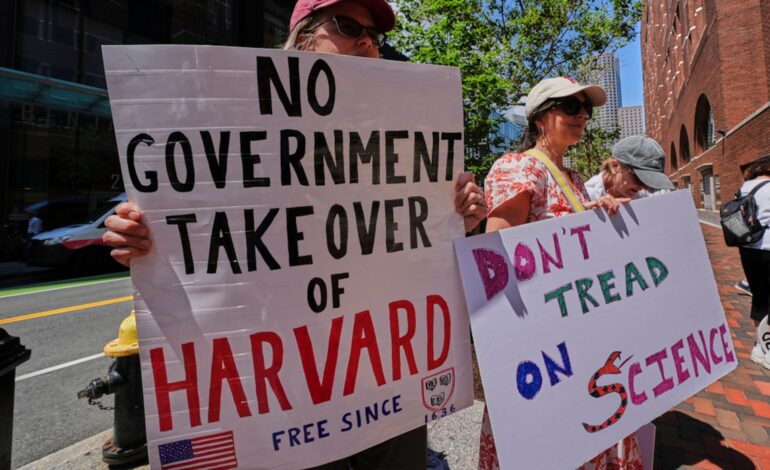Trump Administration Proposes Grant Funding Shift for Universities

The Trump administration is developing a plan that could provide colleges and universities aligning with its policies a competitive advantage in securing federal research grants. According to The Washington Post, this initiative signals a shift away from targeting individual institutions through investigations and sanctions, aiming instead to encourage compliance across larger groups of educational entities.
The proposal suggests that universities may need to affirm commitments to merit-based admissions and hiring processes, excluding considerations of race or ethnicity. Additionally, institutions could be required to focus on specific criteria for foreign student applications and ensure that tuition costs align with the perceived value of education offered to students. A senior White House official stated, “Now it’s time to effect change nationwide, not on a one-off basis.”
While details of the plan are still being finalized, the administration has already faced legal challenges. Earlier this month, a federal judge ruled in favor of Harvard University concerning cuts to nearly $3 billion in federal funding aimed at addressing allegations of antisemitism on campus. In response to this ruling, former President Trump announced plans to appeal the decision via social media.
The Trump administration has also scrutinized the University of California system, threatening to withdraw research funding and demanding repayment of more than $1 billion. As discussions unfold, university officials are grappling with how to navigate the shifting landscape of federal oversight, as many institutions have yet to establish unified responses to the administration’s push for reforms.
Since Trump’s return to office, several prestigious universities, including Columbia, Harvard, and UCLA, have experienced funding cuts and investigations purportedly aimed at ensuring compliance with civil rights laws. The proposed funding system rewards institutions demonstrating adherence to Trump administration policies with a “competitive advantage” in federal grant applications.
“I think there will be an opportunity for universities to be forward-looking and … state their positions out loud: What are the things that you believe? What are your values? How are you providing value to students?” remarked the senior White House official. This sentiment underscores the administration’s desire for universities to publicly affirm their alignment with specific ideologies, which critics argue could undermine academic independence.
Investigations into individual universities accused of civil rights law violations will persist. Notably, Columbia University agreed to pay a $200 million fine to restore federal funding after the administration suspended $400 million in grants over allegations of failing to address antisemitic incidents on campus during the recent Israel-Hamas conflict. Similarly, Brown University reached a settlement to pay $50 million to local workforce development organizations, restoring access to multiple federal research grants while also agreeing to adopt the government’s definitions of gender for admissions processes.
In a significant case, the University of Pennsylvania resolved a federal civil rights investigation by modifying records related to transgender swimmer Lia Thomas. The university issued an apology to female athletes who felt disadvantaged by her participation on the women’s swimming team, after the administration suspended $175 million in funding.
Critics of the proposed plan have voiced strong opposition, characterizing it as an “assault on institutional autonomy, on ideological diversity, on freedom of expression and academic freedom.” Ted Mitchell, president of the American Council on Education, expressed concern that the new requirements prioritize political alignment over merit-based assessments. “Suddenly, to get a grant, you need to not demonstrate merit, but ideological fealty to a particular set of political viewpoints. I can’t imagine a university in America that would be supportive of this,” he stated.
As discussions continue, the implications of this proposed funding shift could significantly alter the landscape of higher education in the United States, as universities navigate their commitments to academic integrity and federal compliance.






